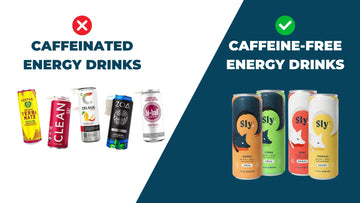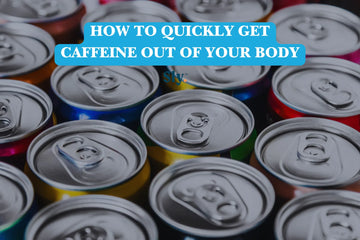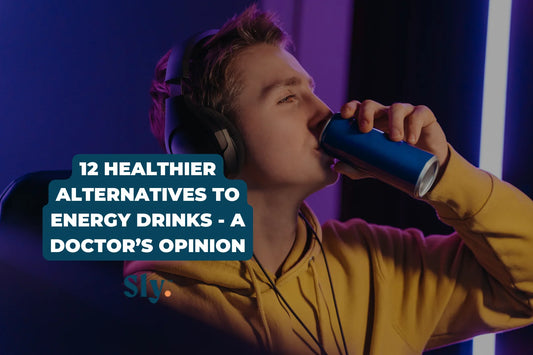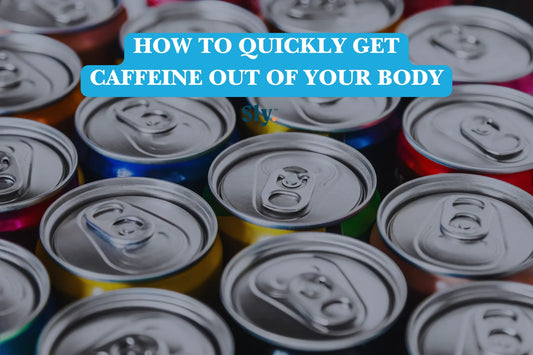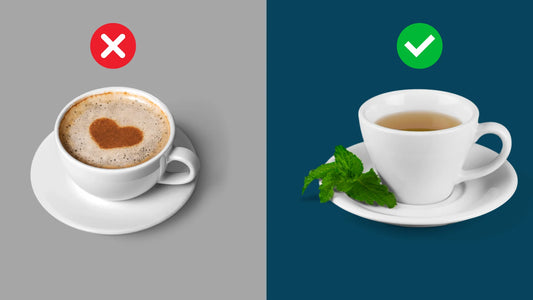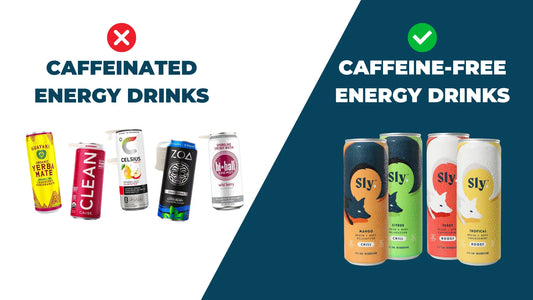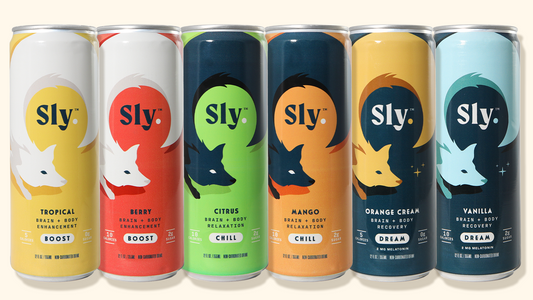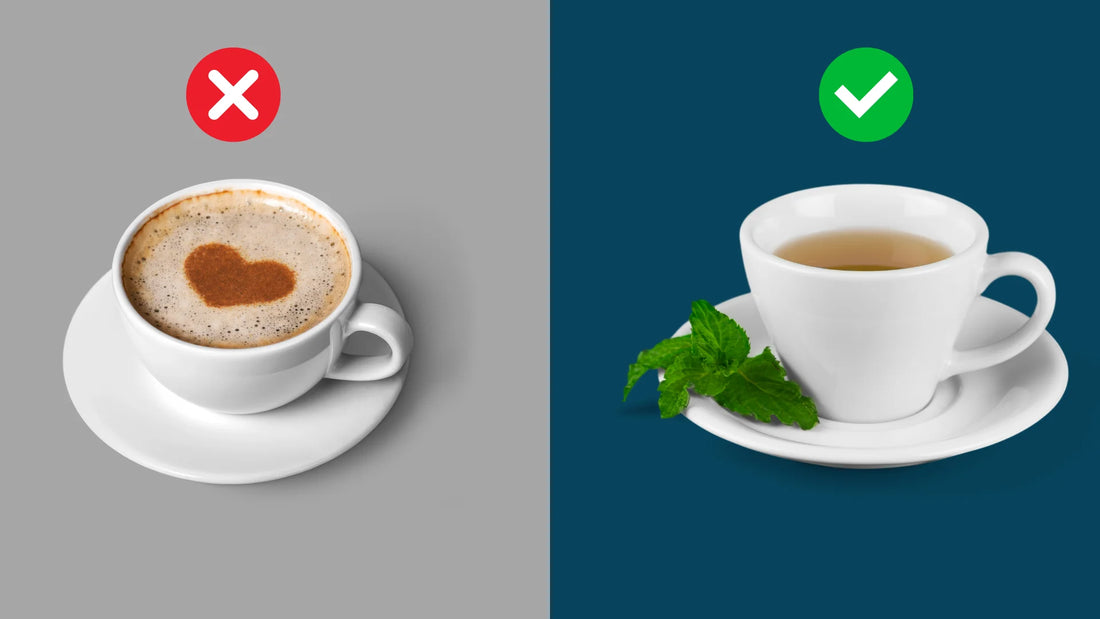
7 Easy Ways to Get Rid Of Caffeine Jitters
Are you a coffee lover who’s had one cup too many and now is feeling a bit off? You’re not alone.
Too much caffeine can lead to unwanted anxiety and jitters, and it gets even worse if you don’t know how long it’ll last or what you can do about it.
There are several effective ways to get rid of caffeine jitters, and in this guide, we’ll cover how to spot caffeine jitters and get rid of them.
What are Caffeine Jitters?
Caffeine jitters are the body’s reaction to too much caffeine in a short amount of time.
They often feel overstimulating, making your head buzz and your heart race. This can lead to anxiety and mental distress, and you’ll want to get rid of them ASAP.
What Causes Caffeine Jitters
When consumed, caffeine stimulates the central nervous system and blocks the action of the neurotransmitter adenosine. This causes an increase in mental alertness and energy.
Drinking too much caffeine can lead to overstimulation of the central nervous system, which causes jitter, tremors, and increased heart rate, especially in people with caffeine sensitivities.
Caffeine jitters are generally not dangerous but can be uncomfortable and difficult to deal with. If you regularly experience caffeine jitters, that should be your stop sign for caffeine.
7 Symptoms of Caffeine Jitters
-
Increased Heartbeat: One of the common symptoms of caffeine jitters is an elevated heart rate.
-
Restlessness: Caffeine jitters can manifest as an inability to sit still or feeling agitated. The constant need to move or fidget clearly indicates you’ve consumed too much caffeine.
-
Anxiety: The sudden increase in your stress hormones caused by caffeine puts your body into a ‘fight or flight’ mode. This can lead to a rush of anxiety, panic attacks, or feelings of unease.
-
Nervousness: The jittery feeling can affect your daily interactions and mood.
-
Dizziness: Some may feel dizzy or lightheaded after consuming too much caffeine. This sensation can be unsettling and you may experience feelings of imbalance.
-
Sweating: Sweating excessively without engaging in physical activity can be a symptom of caffeine jitters. The body's response to the stimulant properties of caffeine can lead to increased perspiration.
-
Shortness of Breath: In severe cases, caffeine jitters can result in shortness of breath or difficulty breathing. This symptom should be taken seriously and have it looked at by a medical expert.
If you notice any of these symptoms after consuming caffeinated beverages, it may be a sign that you have reached your limit and should consider cutting back on caffeine intake to avoid the uncomfortable effects of jitters.
How Long Do Caffeine Jitters Last?
Caffeine’s stimulatory effects typically begin after around 30 minutes and last up to 5 hours or longer.
Caffeine has a half-life of 2 to 12 hours, which means that’s the amount of time that your body needs to metabolize and eliminate half the dose of caffeine you consumed.
This range varies because many individual factors, like metabolism and the digestive system, affect how soon the effect of caffeine wears off.
7 Ways To Get Rid Of Caffeine Jitters
Once you’ve consumed caffeine, you can’t help your body metabolize it faster. The only thing you can do is help yourself by minimizing the side effects and helping your body feel better.
Here are 7 ways you can do that:
1. Don't Consume Any More Caffeine
The first step to terminate caffeine jitters is to avoid consuming any more caffeine. Stop the intake of coffee, tea, energy drinks, or any other caffeinated beverages to prevent any further issues or jitters.
The best thing to drink leads us to number two, water.
2. Stay Hydrated and Drink Plenty Of Water
Drinking plenty of water can help flush out the excess caffeine from your system and help ease the jitters.
It’s best to stay hydrated throughout the day to avoid headaches, decreased urination, dizziness, and fatigue.
So, it’s best if you consistently make a conscious effort to reach for a bottle of water during the day.

3. Try Herbal Tea
Herbal teas like chamomile or peppermint can have calming properties that may help soothe caffeine jitters. Drinking herbal tea can give you a soothing and relaxing break from caffeine while also helping with jitter relief.
4. Walk or Exercise
Going outside for a fresh breath can make a huge difference when you’re experiencing caffeine jitters. Your mind and your body will thank you for it.
Exercise releases endorphins, which can elevate your mood and reduce the intensity of caffeine jitters.

5. Eat a Healthy Meal
Eating a healthy meal can help your digestive system absorb and metabolize caffeine after taking too much.
Meals saturated with vitamin C, protein, carbohydrates, and healthy fats can support your system with the caffeine jitters.
6. Meditate
If walking and exercising don’t work for you, meditation and mindfulness exercises can calm your nervous system.
Find a relaxing and quiet space either outdoors or indoors, sit comfortably, and pay attention to how your body feels at the moment.
Take a few moments to relax, focus on your breath, and center yourself to reduce the feeling of jitteriness.

Foods that Help With Caffeine Jitters
Feeling jittery after consuming too much caffeine can be uncomfortable, but certain foods can help alleviate those symptoms. Incorporating specific nutrients into your diet can support your body in calming the effects of excess caffeine. Let's explore some foods that can assist in reducing caffeine jitters:
Magnesium-rich Foods
Magnesium is known for its relaxing properties and can help counteract the stimulating effects of caffeine.
Foods high in magnesium are leafy greens like spinach and kale, nuts and seeds such as almonds and pumpkin seeds, whole grains like brown rice, and legumes like black beans.
Eating these foods can help calm the nervous system and regulate the body’s stress response.
Vitamin C
Vitamin C is an antioxidant that can aid in reducing stress and boosting your immune system.
Citrus fruits like oranges, strawberries, and kiwi are excellent sources of vitamin C which can help you reduce the feelings of caffeine jitter.
Omega-3 Fatty Acids
Omega-3 fatty acids are essential fats that support brain health and cognitive function.
Foods rich in omega-3s, such as fatty fish like salmon and mackerel, chia seeds, and walnuts, can help regulate neurotransmitters in the brain, which also helps reduce the jitters caused by caffeine
Chamomile Tea
Chamomile tea’s calming properties can help reduce caffeine jitters by relaxing your brain and reducing anxiety.
It has also been used as a mild sedative that calms nerves, reduces anxiety, and treats many sleep problems.
How To Prevent Caffeine Jitters
An ounce of prevention is worth a pound of cure. The best thing you can do about caffeine jitters is avoid getting them.
Here are some ways you can prevent caffeine jitters.
Don't Drink Coffee on an Empty Stomach
Consuming coffee on an empty stomach can amplify the effects of caffeine, leading to increased jitteriness. Start your day with a balanced breakfast that includes vitamins, minerals, carbohydrates, and protein.
This can help slow down the absorption of caffeine and reduce the likelihood of jitters.
Additionally, consider eating a banana or other potassium-rich foods as they can help counteract the effects of caffeine.
Use Sly Caffeine-Free Alternatives
The main reason you drink coffee is to get an energy boost and increase your mental alertness, right?
What if you had an energy drink that energizes your mind and body, and strengthens your mental alertness without the crash, jitters, or risking heart health?
Sly BOOST is an energy drink made by medical experts that uses a no-caffeine formula to boost your energy. This means you can get an energy lift without the worry of getting jitters, not being able to sleep, or crashing after a few hours.

Know Your Limit
If you notice that you get caffeine jitters after a certain amount of coffee or energy drinks, know your limit and stay below it.
Your body tells you what it needs, and you should pay attention to the symptoms and reactions your body has.
Even if you’re upset, anxious, or extremely stressed, caffeine won’t do you any good with those symptoms, so it’s best to avoid it completely or use an alternative, like Sly BOOST.
Types of Beverages Most Likely to Cause Jitters
Some drinks are known to have higher caffeine content, and more caffeine means an increased chance of getting jitters.
Highly Caffeinated Coffee
Highly caffeinated coffee, especially those with extra shots of espresso or coffee blends is the most common cause of caffeine jitters.
The roast type of your coffee also makes a difference. Lightly roasted coffee beans don’t lose as much of their caffeine content as dark-roasted coffee beans do.
Energy Drinks
We recommend staying away from energy drinks completely. They cause a lot of health issues and side effects, and one of them is caffeine jitters.
Caffeine isn’t the only problem with energy drinks, many brands use unhealthy ingredients that further damage the heart.
Black Tea
While black tea is known for many health benefits, consuming it in large amounts or using stronger blends can lead to unwanted caffeine jitters.
Conclusion
Simply understanding how caffeine jitters work and how long they last makes a massive difference in treating them.
So, next time you go overboard with coffee or other caffeinated drinks, make sure to remember what we’ve covered in this article to help ease the jitters.

